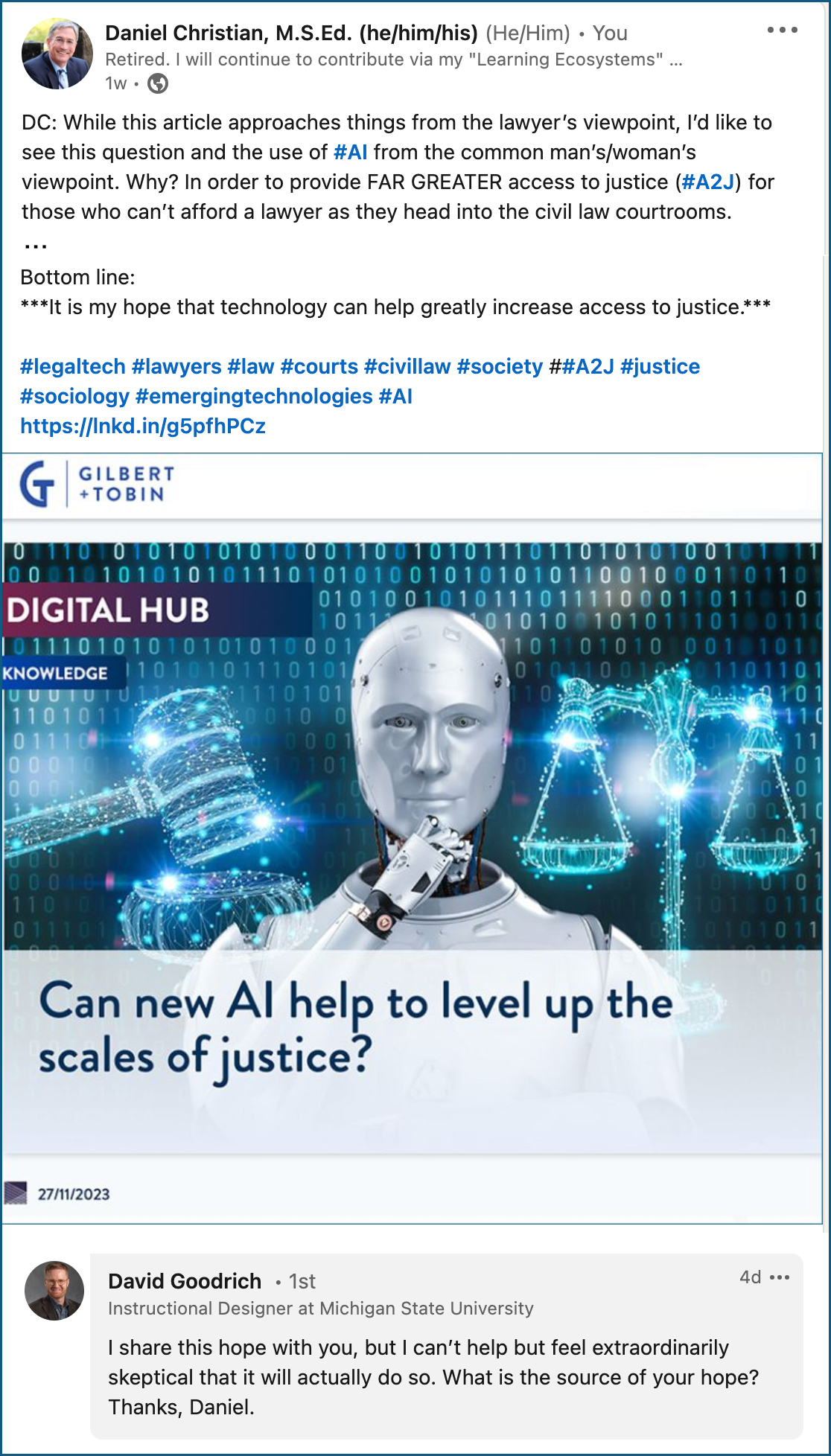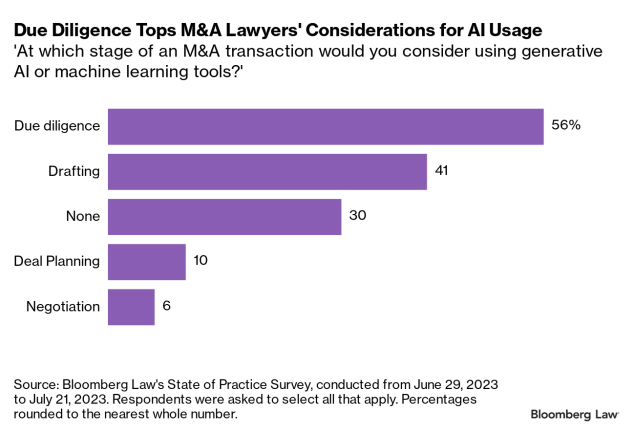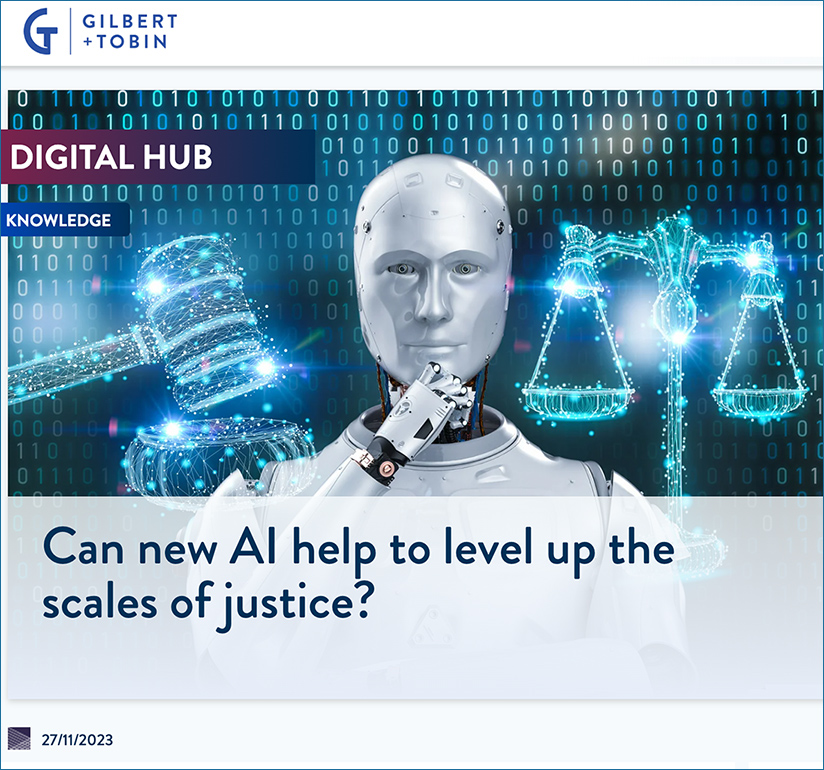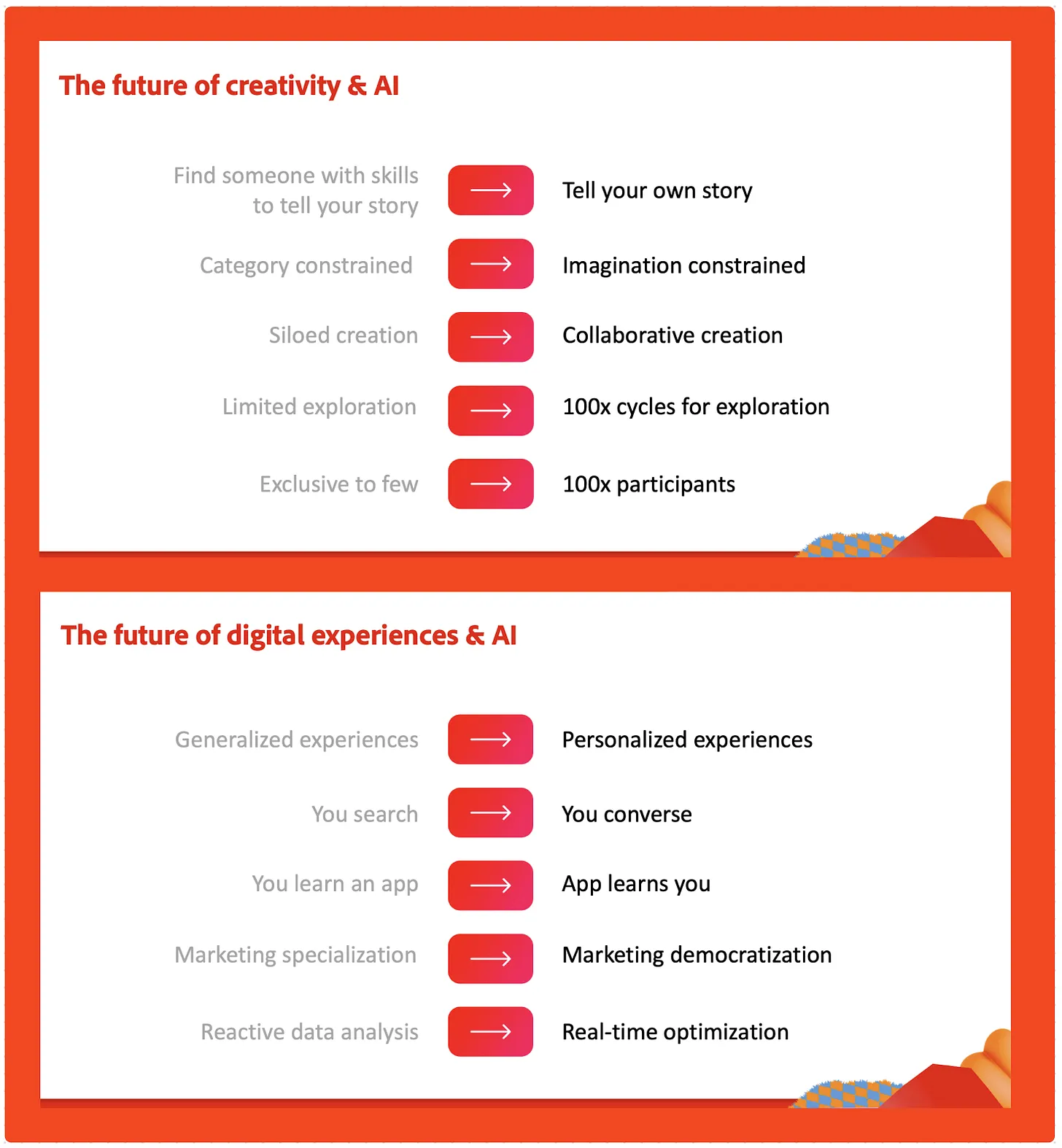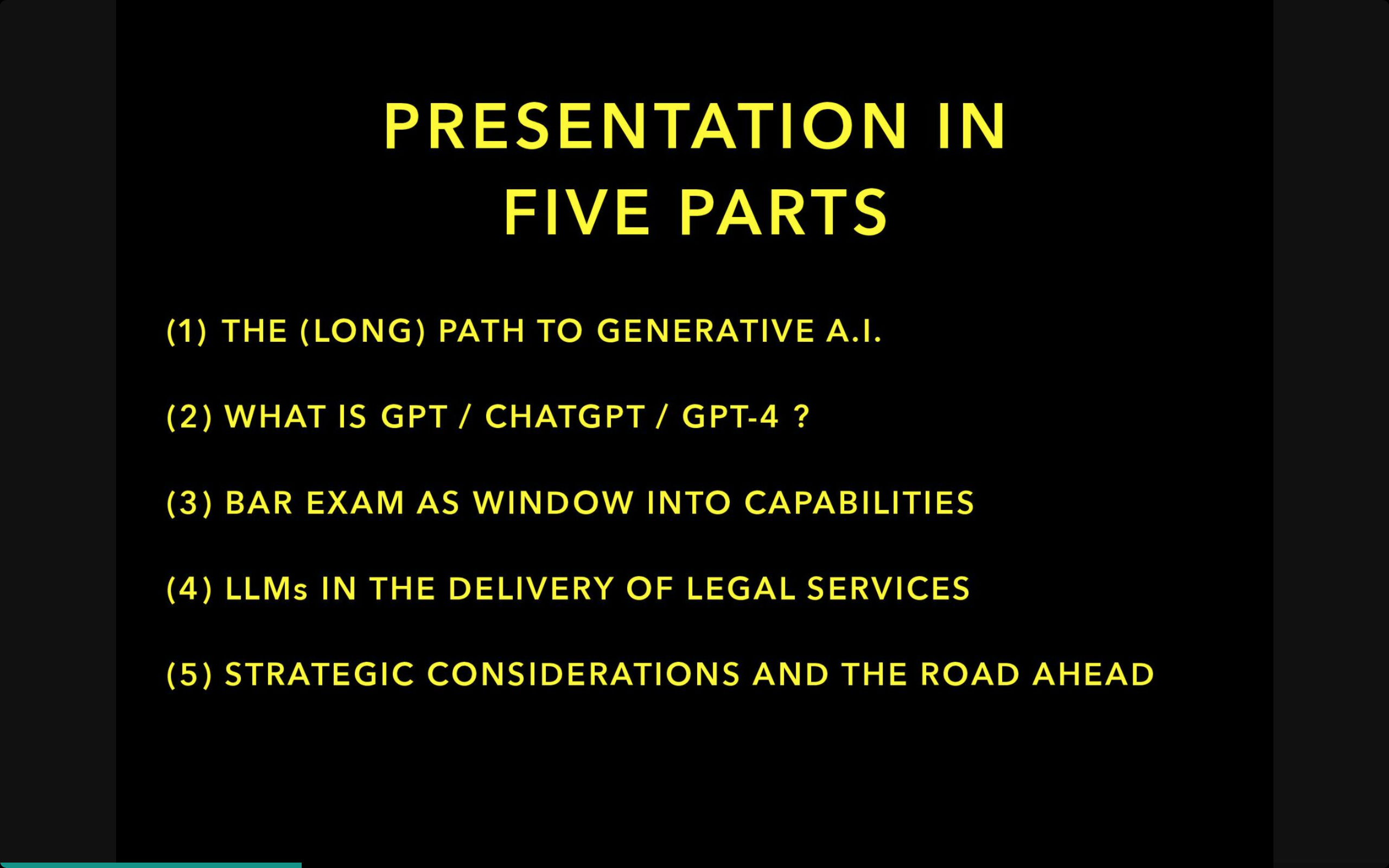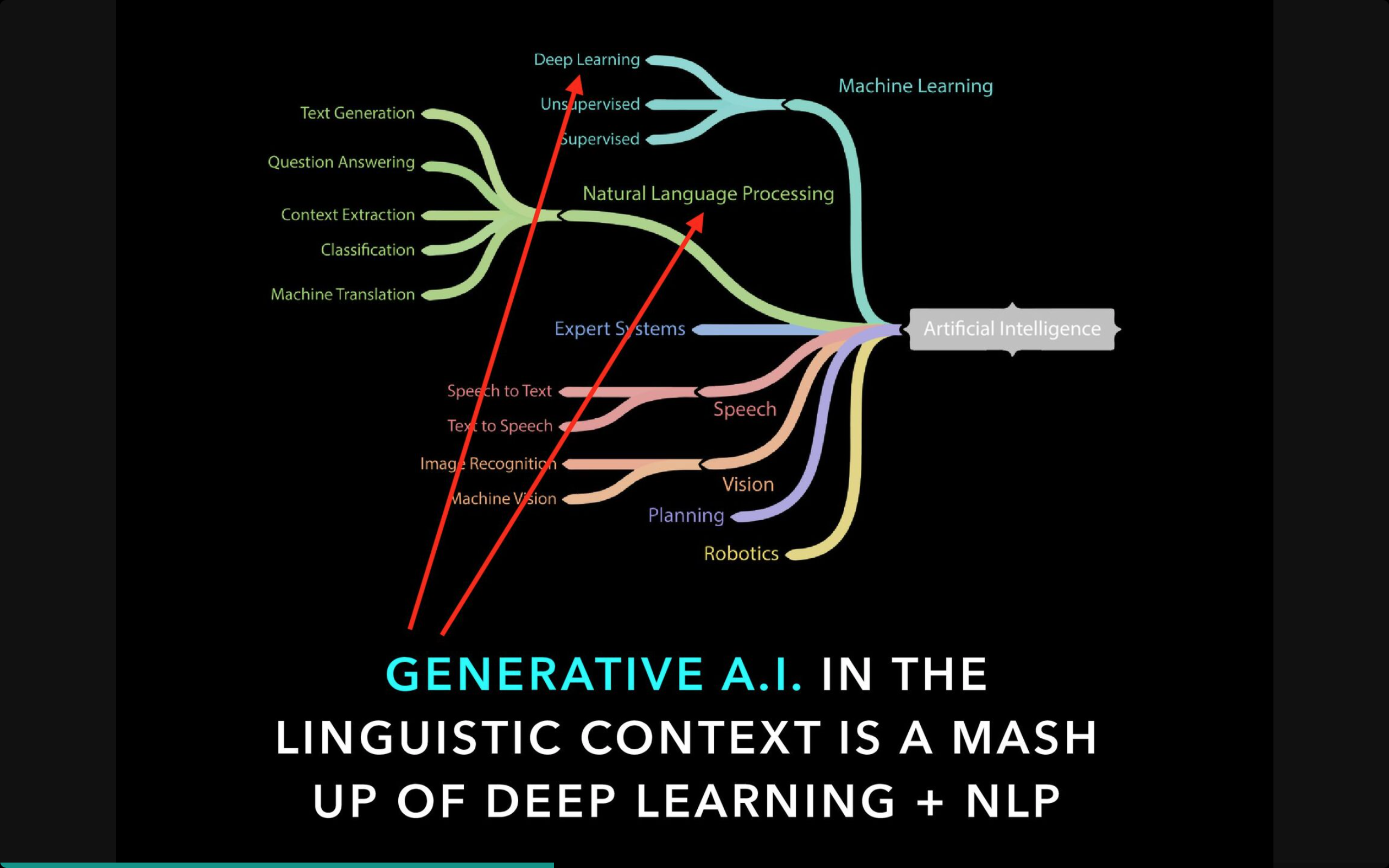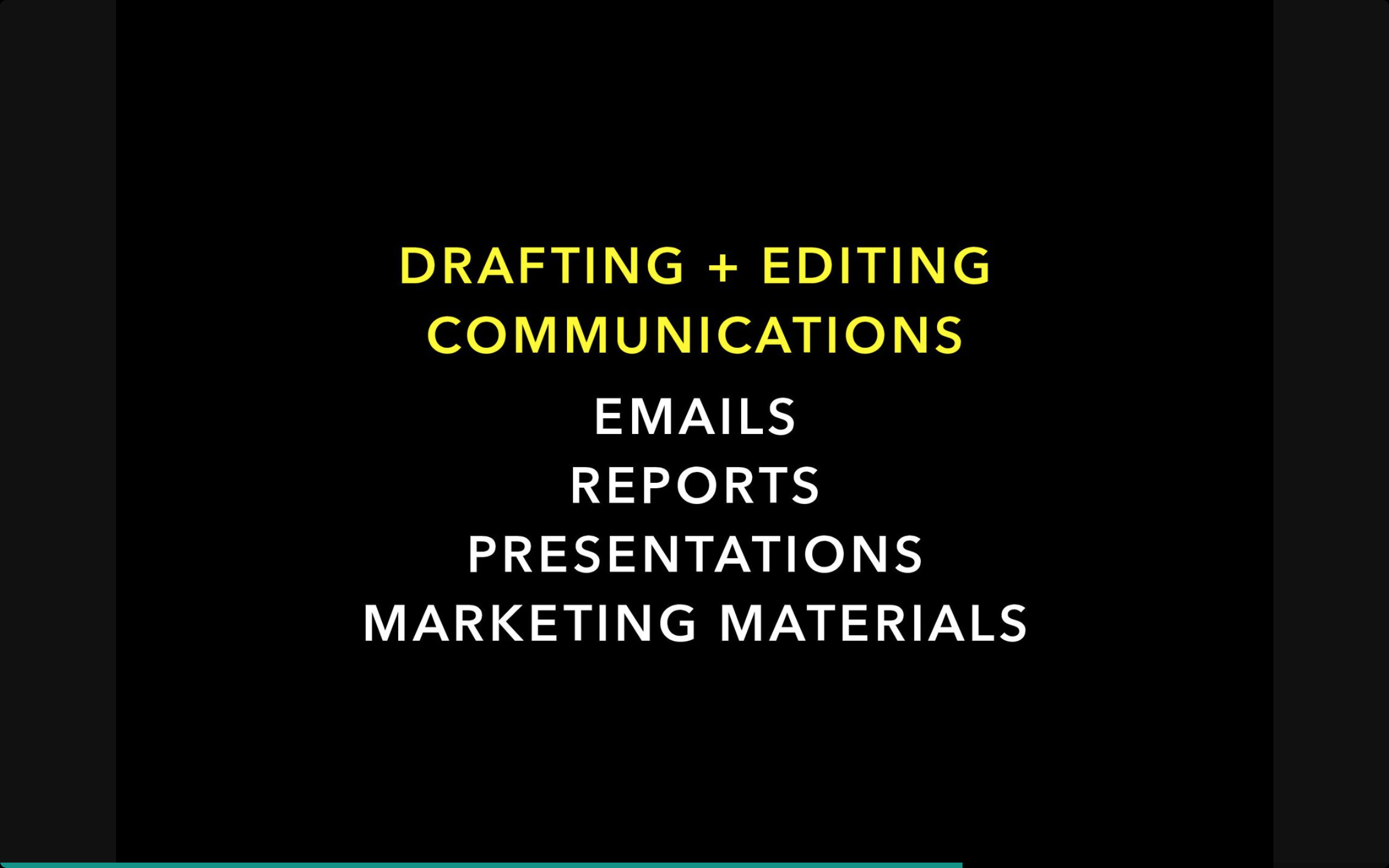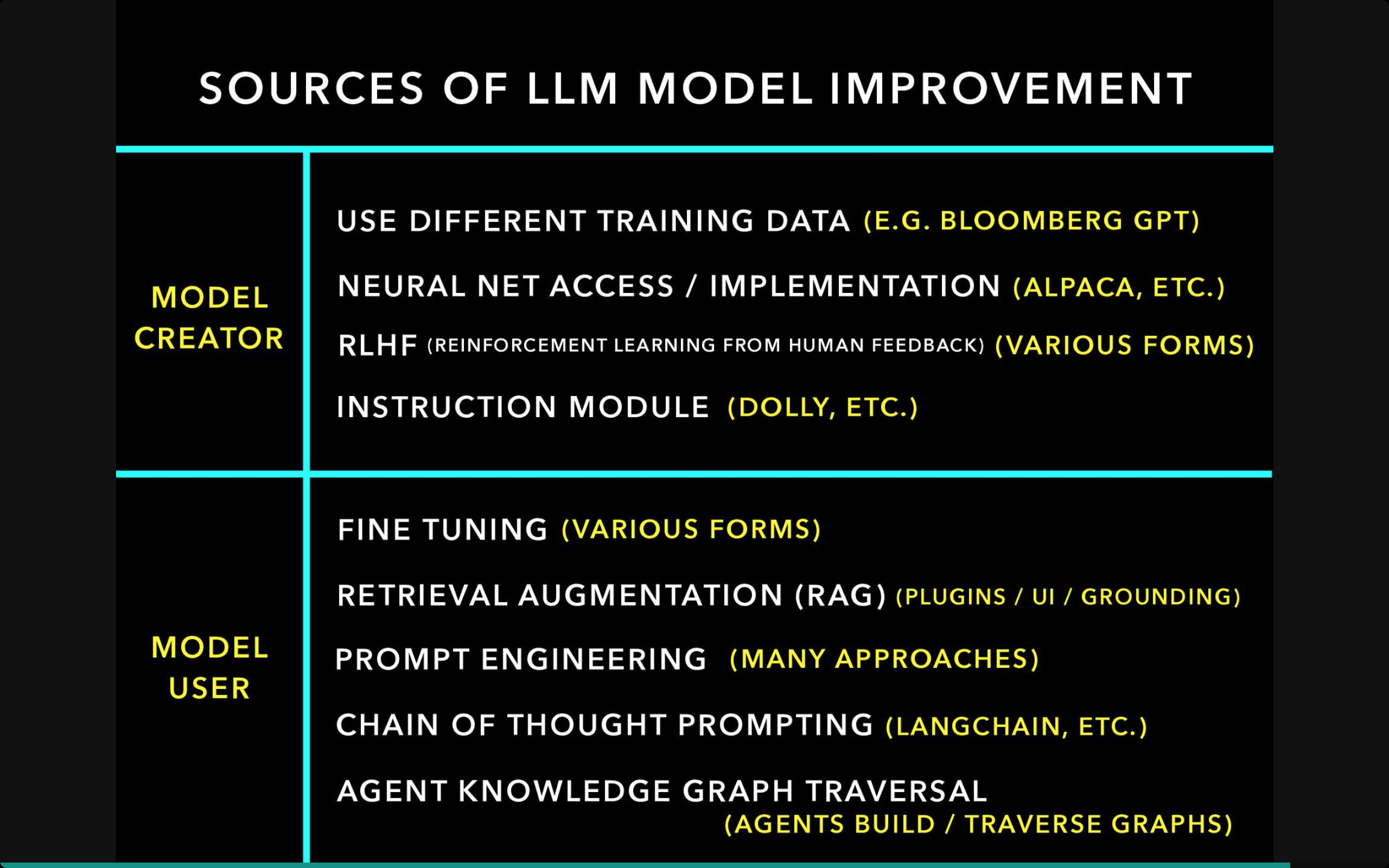From DSC:
As you can see from the above items, Mr. David Goodrich, a great human being and a fellow Instructional Designer, had a great comment and question regarding the source of my hope that AI — and other forms of legaltech — could significantly provide more access to justice here in America. Our civil justice system has some serious problems — involving such areas as housing, employment, healthcare, education, families, and more.
I’d like to respond to that question here.
First of all, I completely get what David is saying. I, too, have serious doubts that our horrible access to justice (#A2J) situation will get better. Why? Because:
- Many people working within the legal field like it this way, as they are all but assured victory in most of the civil lawsuits out there.
- The Bar Associations of most of the states do not support changes that would threaten their incomes/livelihoods. This is especially true in California and Florida.
- The legal field in general is not composed, for the most part, of highly innovative people who make things happen for the benefit of others. For example, the American Bar Association is 20+ years behind in terms of providing the level of online-based learning opportunities that they should be offering. They very tightly control how legal education is delivered in the U.S.
Here are several areas that provide me with hope for our future
There are innovative individuals out there fighting for change.
And though some of these individuals don’t reside in the United States, their work still impacts many here in America. For examples, see:
- Cat Moon
- Natalie Anne Knowlton
- Justice Bridget McCormack
- Dan Linna Jr.
- James Sandman
- Colin Levy
- Richard Susskind
- Jordan Furlong
- Bob Ambrogi
- Josh Kubicki
- Richard Tromans at Artificial Lawyer
- Dennis Kennedy and Tom Mighell
- …and many others
There are innovative new companies, firms, and other types of organizations out there fighting for change. For examples:
- IAALS, the Institute for the Advancement of the American Legal System at the University of Denver
- Legal Aid of North Carolina
- Innovation for Justice (i4J): i4J designs, builds, and tests disruptive solutions to the justice gap
- University of Pennsylvania’s Future of the Profession Initiative at the Penn Carey Law School
- A2J Tech
- The AAAi Lab: A web center supporting American Arbitration Association® (AAA) users, arbitrators, in-house counsel and law firms with policy guidance, educational webinars and tools for embracing generative AI in alternative dispute resolution.
- Ironcrow AI’s LLM Sandbox: Setting an Industry Standard (patent law)
- Wolters Kluwer (who recently announced a Generative AI Summarization Feature for Court Rulings)
- Law School AI
- Rasa
- Legal Hackers
- Frontline Justice
- Legal Services Corp.
- …and many others
There are innovative new tools and technologies out there such as:
- Artificial Intelligence (AI) and Machine Learning (ML)
- AI and machine learning remain pivotal in legaltech, especially for in-house lawyers who deal with vast quantities of contracts and complex legal matters. In 2024, these technologies will be integral for legal research, contract review, and the drafting of legal documents. Statistics from the Tech & the Law 2023 Report state more than three in five corporate legal departments (61%) have adopted generative AI in some capacity, with 7% actively using generative AI in their day-to-day work. With constant improvements to LLM (Large Language Models) by the big players, i.e. OpenAI, Google, and Microsoft (via OpenAI), 2024 will see more opportunities open and efficiencies gained for legal teams. (Source)
- From drafting contracts to answering legal questions and summarising legal issues, AI is revolutionising the legal profession and although viewed with a sceptical eye by some law firms, is generally perceived to be capable of bringing huge benefits. (Source)
- Legal bots like Harvey will assist lawyers with discovery.
- Technology-assisted review (TAR) in e-discovery
- Due to COVID 19, there were virtual courtrooms set up and just like with virtual/online-based learning within higher education, many judges, litigants, lawyers, and staff appreciated the time savings and productivity gains. Along these lines, see Richard Susskind’s work. [Richard] predicts a world of online courts, AI-based global legal businesses, disruptive legal technologies, liberalized markets, commoditization, alternative sourcing, simulated practice on the metaverse, and many new legal jobs. (Source)
There are innovative states out there fighting for change. For examples:
- Utah in 2020 launched a pilot program that suspended ethics rules to allow for non-lawyer ownership of legal services providers and let non-lawyers apply for a waiver to offer certain legal services. (Source)
- Arizona in 2021 changed its regulatory rules to allow for non-lawyer ownership. (Source)
- Alaska with their Alaska Legal Services Corporation
- …and others
And the last one — but certainly not the least one — is where my faith comes into play. I believe that the Triune God exists — The Father, The Son, and The Holy Spirit — and that the LORD is very active in our lives and throughout the globe. And one of the things the LORD values highly is JUSTICE. For examples:
-
“This is what the Lord Almighty said: ‘Administer true justice; show mercy and compassion to one another. Do not oppress the widow or the fatherless, the foreigner or the poor. Do not plot evil against each other.’ Zechariah 7:9-10
- Many seek an audience with a ruler, but it is from the Lord that one gets justice. Proverbs 29:26 NIV
- These are the things you are to do: Speak the truth to each other, and render true and sound judgment in your courts; Zechariah 8:16 NIV
- …and many others as can be seen below

So I believe that the LORD will actively help us provide greater access to justice in America.
Well…there you have it David. Thanks for your question/comment! I appreciate it!









